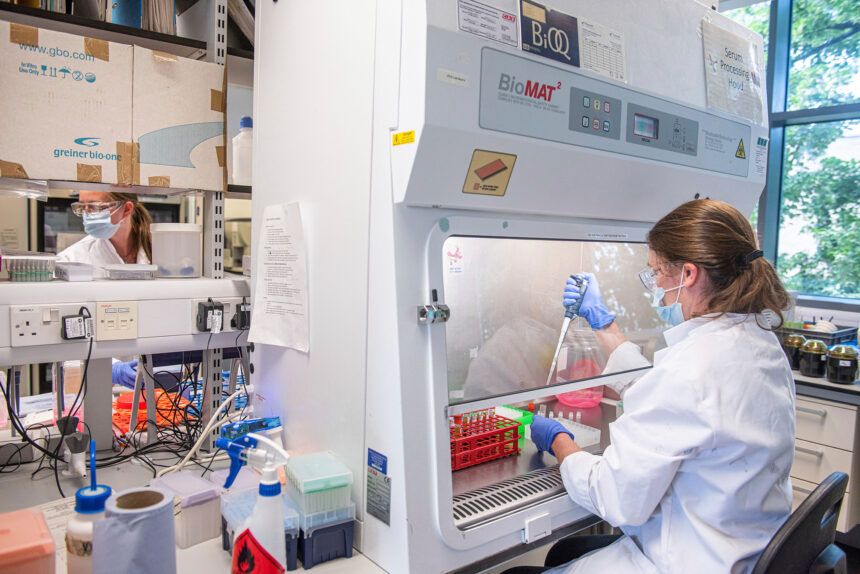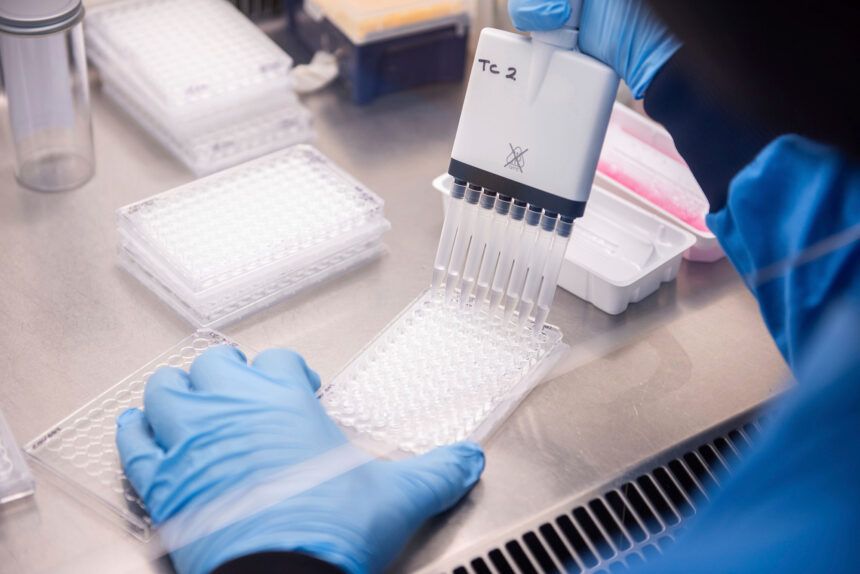AstraZeneca hopes the world can focus on its positive vaccine news. But experts fear a lack of transparency has clouded that


(CNN) -- When the British-Swedish drugmaker AstraZeneca announced on Monday that its experimental coronavirus vaccine is 70% effective on average, the world exhaled a collective sigh of relief and stocks rallied. Another vaccine with promising results had arrived.
But a lack of clarity surrounding several aspects of the data from the AstraZeneca vaccine trials have raised some eyebrows in the scientific community, potentially setting back the timing for the vaccine to be authorized in Europe and the US.
AstraZeneca said on Monday that study participants in the UK had been given two different courses of the vaccine.
The drugmaker, which developed the vaccine with the University of Oxford, did not however, at the time, explain why they used two different dosing regimens or why the size of one group was significantly smaller than the other.
In one group, 2,741 participants received a half-dose of the vaccine and then a full dose at least a month later. This group was 90% protected against Covid-19.
In the second group, 8,895 participants received a full dose followed by another full dose at least a month later. This group was only 62% protected.
That's why AstraZeneca says their vaccine is 70% effective, on average.
But some scientists are questioning why the company would report on a pooled result of two different trials, as it deviates from standard reporting on clinical trials.
And in the days following that announcement, another point of confusion has emerged.
On Tuesday, Mene Pangalos, AstraZeneca's Executive Vice President who heads up non-oncology research and development, first explained to Reuters that a lab error was the reason why some volunteers had received a smaller dose -- the dose that proved to be 90% effective. "The reason we had the half dose is serendipity," Pangalos said, adding that researchers had "underpredicted the dose of the vaccine by half."
In a statement on Wednesday, Oxford's communications manager for vaccines told CNN that "dose selection for any new vaccine is a complicated area, and in exploring methods of dose selection, we discovered one gave a lower dose than expected."
Oxford elaborated further on Thursday, saying in a statement to CNN that a "difference in the manufacturing process" had led to the error.
That manufacturing problem has since been corrected, the statement said, noting that the UK regulator overseeing the trial had agreed to include "both approaches" in Phase 3.
While AstraZeneca and Oxford face criticism about transparency -- given that they did not mention the error in their press release announcing the results nor on a press call on Monday -- the company believes the world should focus on the trial's positive results.
Speaking to the Wall Street Journal on Wednesday, Menelas Pangalos AstraZeneca's Executive Vice-President said, "The mistake is actually irrelevant.
"Whichever way you cut the data -- even if you only believe the full-dose, full-dose data... We still have efficacy that meets the thresholds for approval with a vaccine that's over 60% effective," Pangalos said, according to the WSJ.
AstraZeneca and Oxford have yet to put forward a candidate for interview, as requested by CNN.
The US Food and Drug Administration requires a threshold of at least 50% efficacy. It is not clear if the FDA will authorize emergency use however.
AstraZeneca has not yet tested its half-strength dose in the US either. But on Thursday, a spokesperson for the company told CNN their aim was to include the half-strength dose regimen into their US trials, which currently has around 10,000 participants.
The spokesperson said that the company hopes to recruit around 40,000 volunteers in total -- some of whom would receive the half-dose vaccine. They added that they were in "ongoing discussions" with the FDA for approval, adding that nothing formal had been announced.
On Monday, Dr. Paul Offit, a member of the FDA's Vaccines and Related Biological Products Advisory Committee -- which will review Covid-19 vaccines before they are put on the market -- said the lack of data that led them to their conclusions made it "hard to know the significance of their findings."
When two other major drugmakers, Pfizer and Moderna, released their efficacy results earlier this month, they did include the data that led to their results.
AstraZeneca presented an analysis of 23,000 participants in its Phase 3 trial.
It said some participants received the Covid-19 vaccine, while others received a different vaccine for an unrelated virus, or placebo injections.
A total of 131 study participants developed Covid-19, AstraZeneca said, but they did not say how many of those people had received the vaccine.
What also remains unclear is why the two-dose regimes produced such different efficacy measures.
The trial's lead investigator at Oxford, Professor Andrew Pollard told journalists on Monday that's likely to do with the delicate balance of dosing someone just enough to trigger an immune response against the disease.
"What we've always tried to do with a vaccine is fool the immune system into thinking that there's a dangerous infection there that it needs to respond to -- but doing it in a very safe way," Pollard explained.
So, it may be that the best way of "kicking the immune system into action" could be to give the body a small amount of the vaccine to begin with -- and then follow up with a larger amount, he said.
Responding to whether he had genuine confidence that the half-dose group's 90% success was not just a feature of a small sample size, Pollard said that result was "highly significant...even with the numbers that we have."
But experts are questioning whether those results will hold up if more people are given the lower-dose regime.
In a call with reporters on Wednesday, the US vaccine czar Moncef Slaoui said they were reviewing AstraZeneca's vaccine data.
He said that group that got the mistakenly lower dose that yielded the 90% efficacy had been a younger group, with no one older than 55. That could potentially affect the strength of AstraZeneca's findings, given that young people typically produce stronger immune responses to vaccines.
Both Oxford and AstraZeneca told CNN on Thursday they were unable to give a breakdown of the ages of the people who were given the vaccine in that smaller group.
An AstraZeneca spokesperson told CNN on Thursday that, "given the high efficacy we have now seen with the different dosing regimens, there is strong merit in continuing to further investigate these findings in order to establish the most effective dosing regimen for the vaccine."
He added that the company is having discussions with regulators around the world to evaluate the findings and that they are looking forward to the publication of peer-reviewed results.
But Dr. Saad Omer, a vaccine specialist at the Yale School of Medicine believes the group with the 90% efficacy rate is relatively small and the results may not stand up when more people are given this regimen.
"I hate to criticize fellow academics, or anyone for that matter," he said, "but releasing information like this is like asking us to try and read the tea leaves."
Astrazeneca shares have fallen more than 6% since their announcement on Monday.
The-CNN-Wire
™ & © 2020 Cable News Network, Inc., a WarnerMedia Company. All rights reserved.